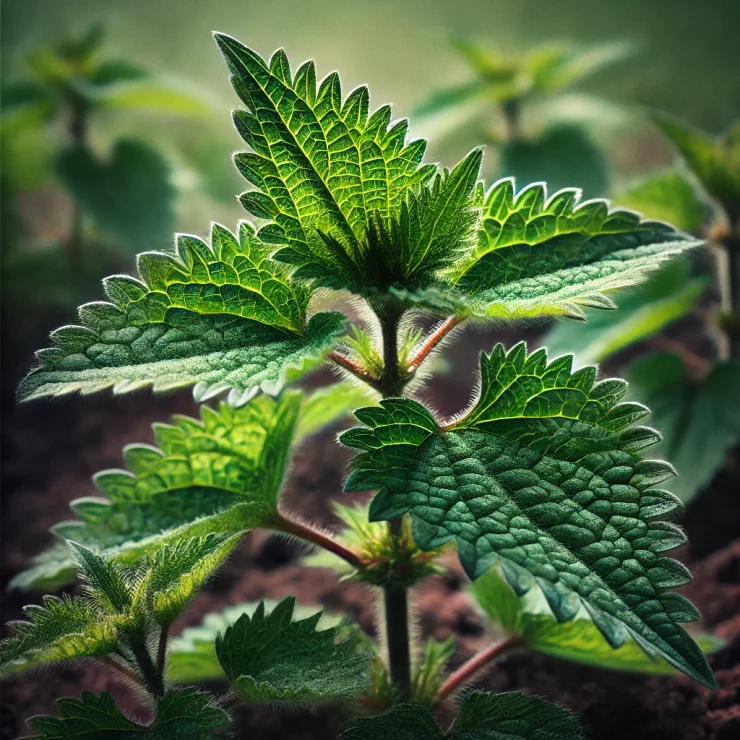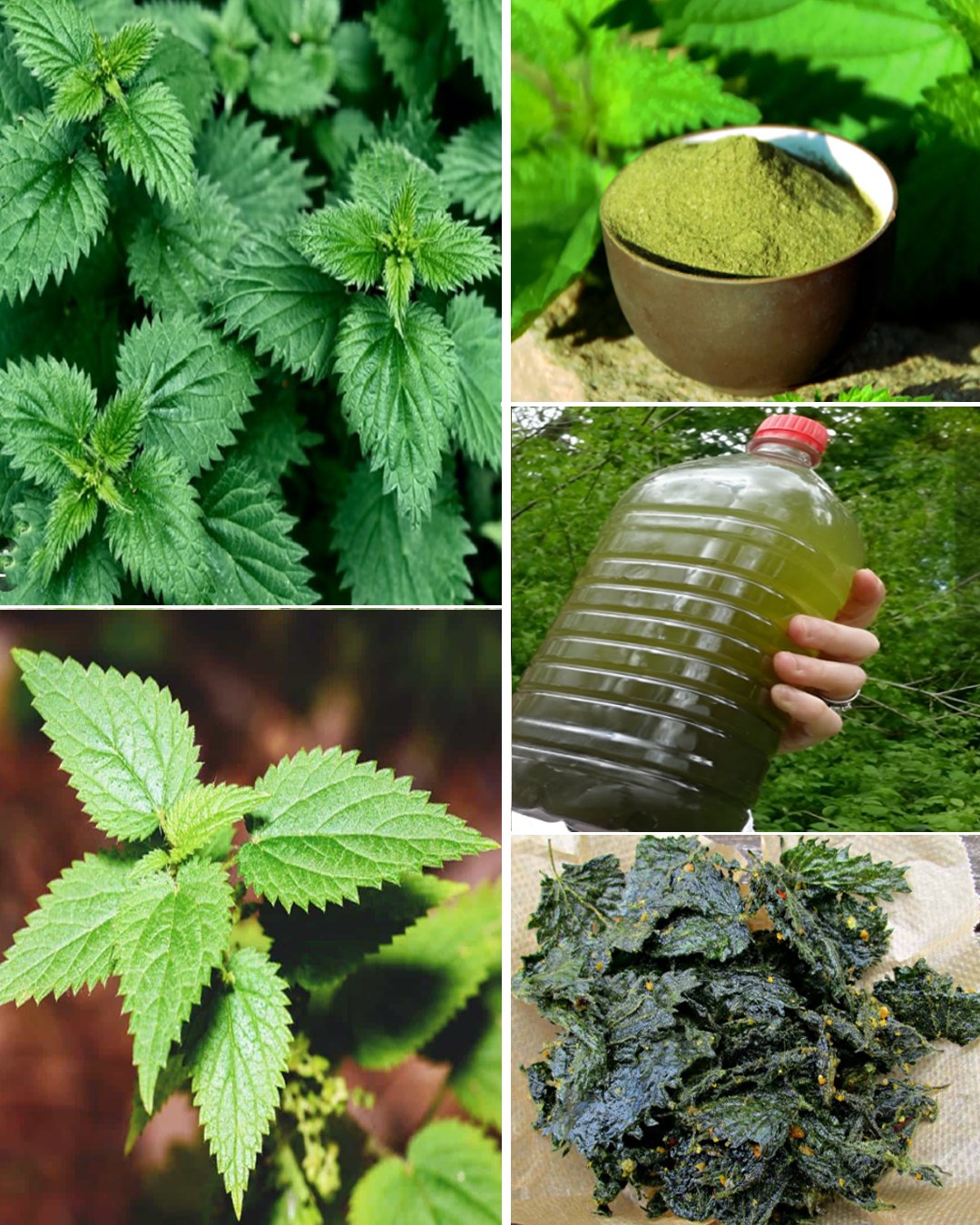Nettle (Urtica dioica), often regarded as a pesky weed, is a plant that many homeowners are quick to remove from their yards. However, this seemingly humble plant is a powerhouse of nutrients and medicinal properties that have been utilized for centuries in traditional medicine and culinary practices. Despite its common presence, few people truly understand the incredible value that nettle offers. Let’s explore why nettle deserves more appreciation and how you can harness its benefits.

1.Nutrient-Rich Superfood
Nettle is packed with essential vitamins and minerals, making it a nutritional powerhouse. The leaves are particularly rich in vitamins A, C, K, and several B vitamins, as well as minerals like iron, calcium, magnesium, and potassium. Consuming nettle can help boost your overall health and provide your body with the nutrients it needs to thrive.
Nutritional Benefits:
Iron: Supports healthy blood and can help prevent anemia.
Vitamin C: Boosts the immune system and improves skin health.
2.Medicinal Properties
Nettle has been used in traditional medicine for centuries to treat a variety of ailments. It is known for its anti-inflammatory, diuretic, and antihistamine properties. These characteristics make nettle an effective remedy for conditions such as arthritis, allergies, and urinary tract infections.
Medicinal Uses:
Anti-Inflammatory: Nettle can help reduce inflammation in conditions like arthritis and joint pain.
Allergy Relief: Nettle acts as a natural antihistamine, helping to alleviate symptoms of hay fever and other allergies.
Diuretic: Promotes kidney function and helps flush out toxins from the body.
3.Supports Healthy Skin and Hair
Nettle is a popular ingredient in many natural skin and hair care products due to its nourishing and revitalizing properties. The plant’s high content of silica and sulfur promotes healthy hair growth, while its anti-inflammatory properties can help soothe skin irritations and conditions like eczema.
Benefits for Skin and Hair:
Hair Growth: Nettle can stimulate hair growth and improve scalp health when used in hair rinses or shampoos.
Skin Health: Applying nettle topically or consuming it as tea can help clear up acne, reduce redness, and soothe irritated skin.
4.Culinary Uses
Nettle is not only medicinal but also edible, and it can be used in a variety of culinary dishes. The leaves, when cooked or dried, lose their sting and can be used in soups, stews, teas, and even as a spinach substitute in various recipes. Nettle’s earthy, slightly nutty flavor adds depth to dishes, and its high nutritional content makes it a healthy addition to any meal.
Culinary Ideas:
Nettle Soup: A classic springtime dish, nettle soup is both nourishing and delicious.
Nettle Tea: A simple infusion of nettle leaves can be enjoyed as a health-boosting tea.
Pesto: Use nettle leaves in place of basil for a unique twist on traditional pesto.
5.Natural Fertilizer
Nettle can be a valuable asset in your garden as well. It can be used to make a natural fertilizer that enriches the soil and promotes plant growth. Nettle fertilizer is rich in nitrogen and other essential nutrients that benefit a wide range of garden plants.
How to Make Nettle Fertilizer:
Nettle Tea: Steep nettle leaves in water for several days to create a nutrient-rich liquid fertilizer. Dilute it with water and apply it to your plants to boost their growth.
Composting: Adding nettle to your compost pile can help accelerate decomposition and increase the nutrient content of the compost.
6.Environmental Benefits
Nettle plays an important role in supporting local ecosystems. It provides a habitat and food source for various beneficial insects, including butterflies and ladybugs. By allowing nettle to grow in a designated area of your yard, you can help promote biodiversity and support the health of your garden.

Environmental Contributions:
Pollinator Support: Nettle flowers are a food source for pollinators like bees and butterflies.
Pest Control: The presence of nettle attracts beneficial insects that prey on garden pests, reducing the need for chemical pesticides.
7.Traditional and Cultural Significance
Nettle has a rich history and cultural significance in many parts of the world. It has been used in folklore, traditional medicine, and even textiles for centuries. In some cultures, nettle is considered a symbol of resilience and protection, and it has been used to make strong, durable fabric known as nettle cloth.
Cultural Uses:
Textiles: Nettle fibers have been used to create durable fabric, ropes, and fishing nets.
Folklore: Nettle has been associated with protection and healing in various cultural traditions.
Nettle is far more than just a common weed; it is a versatile and valuable plant that offers numerous benefits for health, cooking, gardening, and the environment. Instead of discarding it as a nuisance, consider incorporating nettle into your daily life. Whether you use it as a nutrient-rich superfood, a natural remedy, or a garden ally, nettle is a plant that truly deserves a place of honor in your yard and home.
News
Jimmy Butler saga takes another twist with superstar’s surprising announcement
The Jimmy Butler trade saga could be over. Or the drama might be in its second-act lull. Who really knows for sure? On Friday, the star forward released a simple, two-word statement through his agent, Bernie Lee, announcing his return to the Miami…
NBA’s Top 10 Plays of the Night | January 17, 2025
The NBA’s Top 10 Plays of the Night for January 17, 2025, showcased an array of jaw-dropping moments that left fans in awe and highlighted the incredible talent across the league. From thunderous dunks to clutch three-pointers, the night was…
2025 NBA Rivals Week
The NBA’s 2025 Rivals Week is set to be one of the most exciting and highly anticipated events of the season, bringing together some of the league’s most storied rivalries for a week of intense competition and unforgettable moments. As…
Anthony Edwards TAKES OVER In New York – 36 Points!
Anthony Edwards put on a show in New York, scoring a game-high 36 points in a performance that showcased his growing potential as a star in the NBA. The Minnesota Timberwolves’ young guard took over the game against the New…
Giannis Antetokounmpo’s 35-PT DOUBLE-DOUBLE vs Raptors!
Giannis Antetokounmpo delivered a dominant performance against the Toronto Raptors, scoring 35 points and grabbing 12 rebounds for a double-double in a game that showcased his MVP-caliber play. The Milwaukee Bucks’ star forward was unstoppable on both ends of the…
Jamal Murray (30 PTS) & Nikola Jokić (TRIPLE-DOUBLE) vs Heat
Jamal Murray and Nikola Jokić put on a masterclass performance against the Miami Heat, with Murray scoring 30 points and Jokić recording a triple-double in a game that showcased the Denver Nuggets’ dynamic duo. The matchup was a testament to…
End of content
No more pages to load











